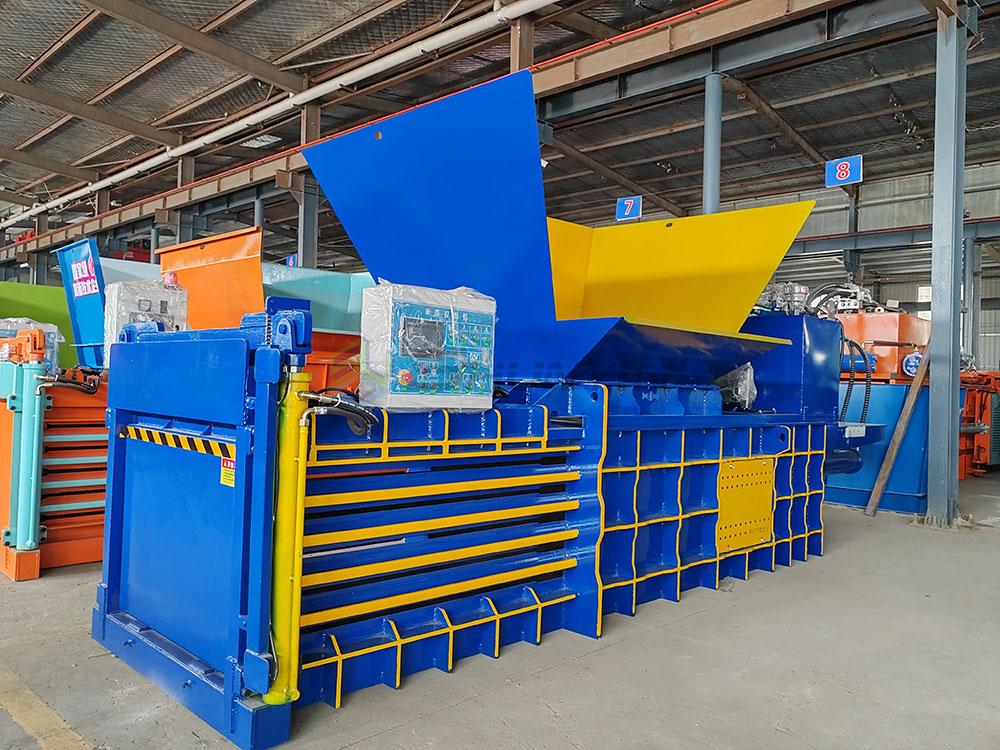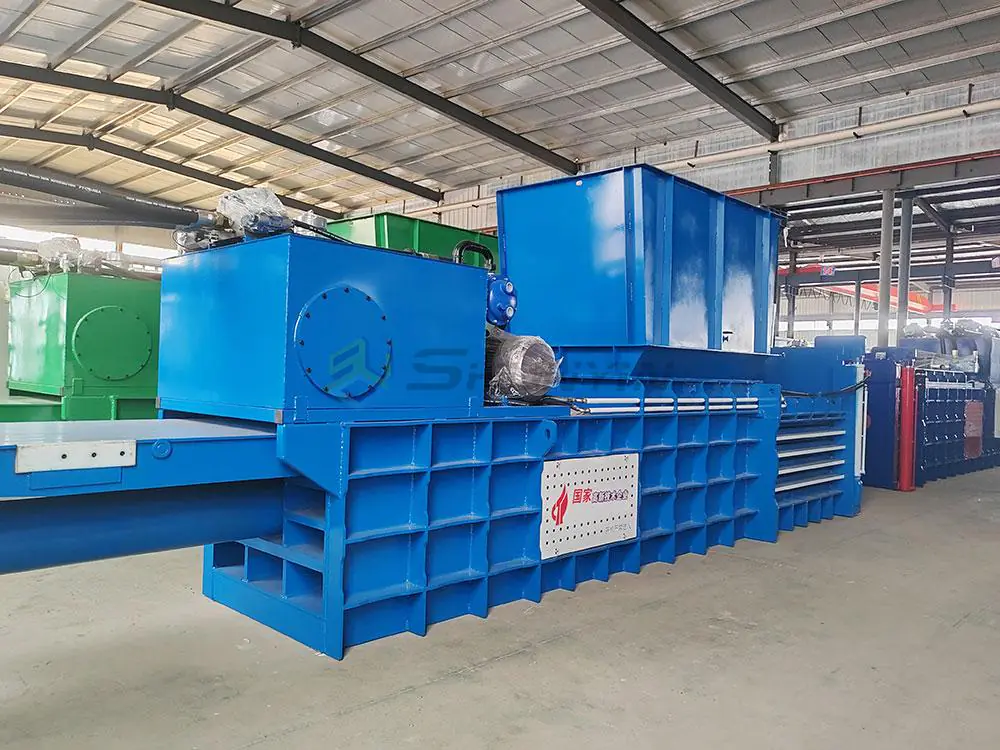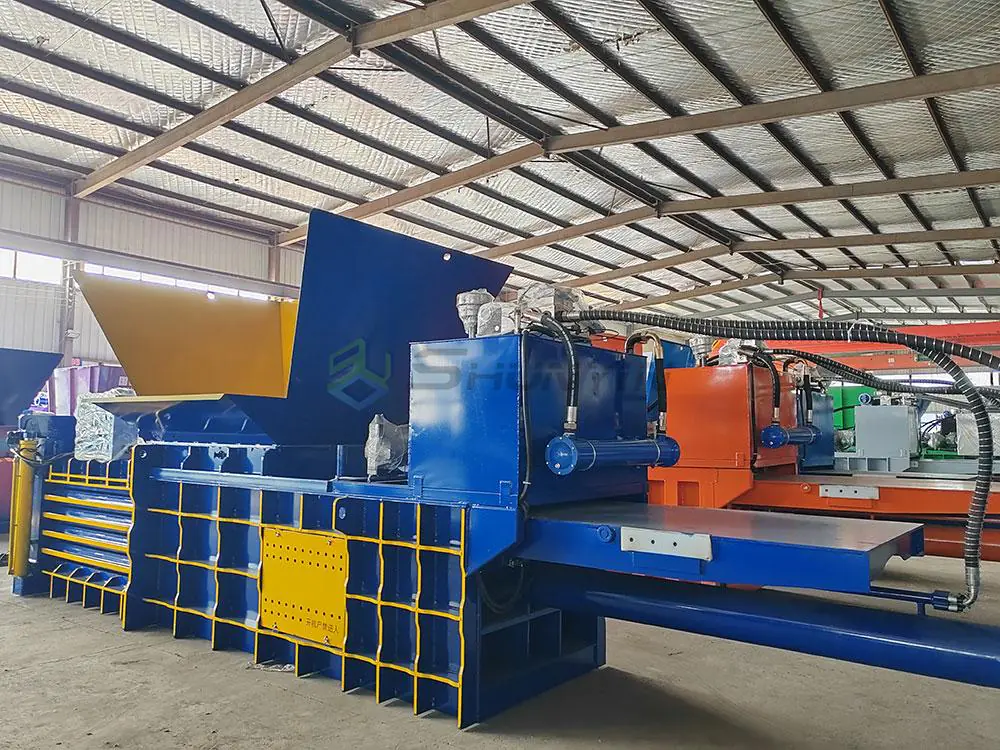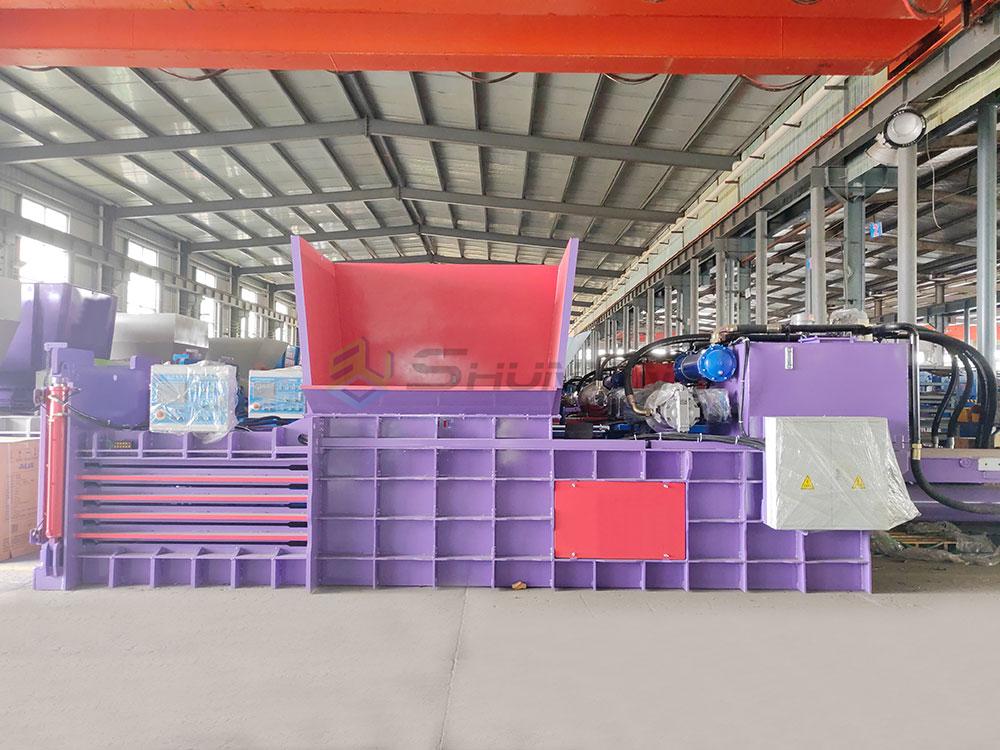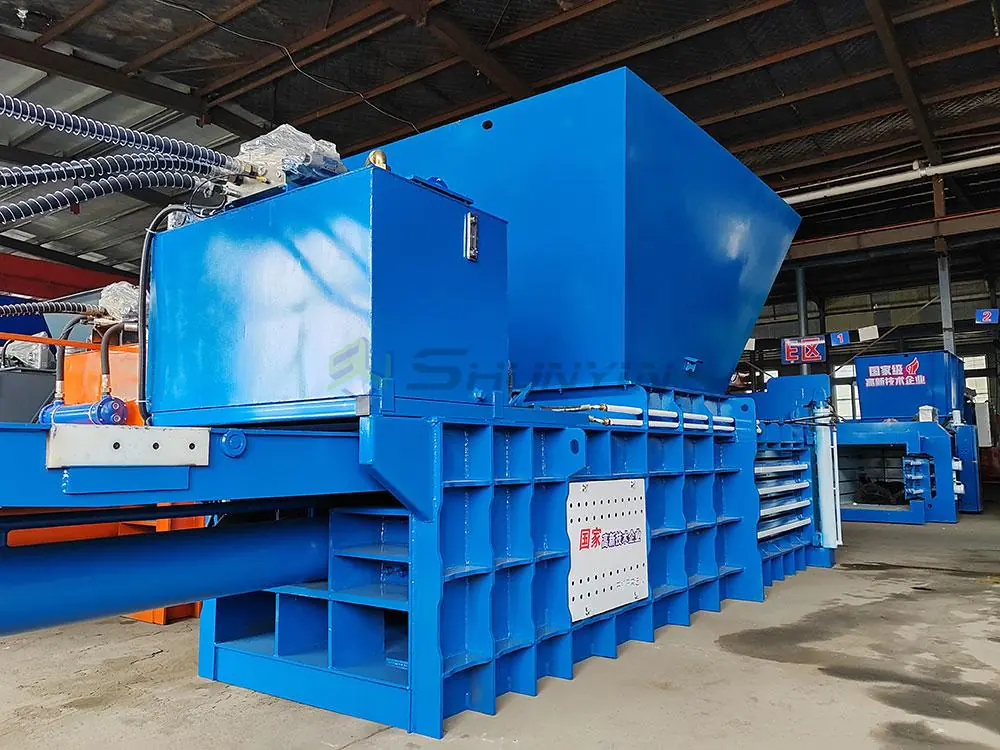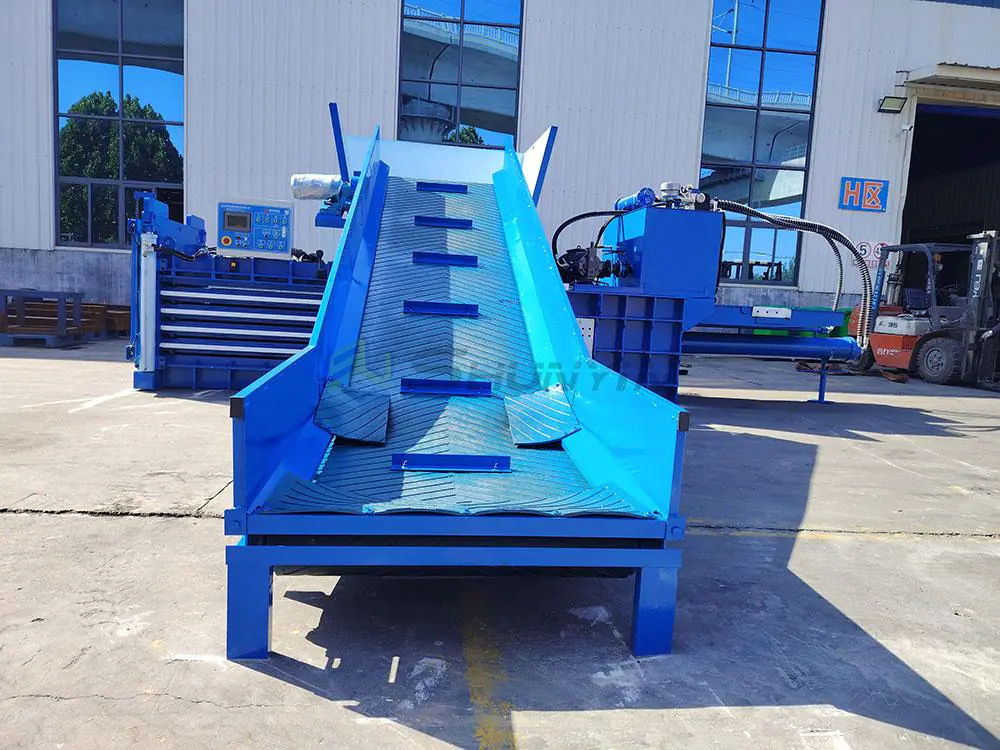
Operating a horizontal hydraulic baler safely is crucial to prevent accidents and ensure efficient waste management. Without proper safety measures, the baler can pose significant risks to operators and the workplace. Implementing comprehensive safety specifications helps maintain a secure and productive environment.
Safety specifications for horizontal hydraulic baler operation include emergency stop buttons, protective guards around moving parts, pressure relief valves, electrical safety compliance (e.g., UL, CE), operator training, and warning signals (audible/visual). These features ensure safe operation, prevent accidents, and protect workers from potential hazards while using the machine.
I recall the first time we implemented strict safety protocols for our baler operations. Not only did it enhance the safety of our team, but it also improved our overall efficiency by minimizing downtime caused by accidents.
What are some safety tips when using a baler?
Ensuring safety while operating a baler is essential to prevent accidents and maintain a secure work environment.
Following safety tips such as wearing protective gear, keeping hands and clothing away from moving parts, and understanding the machine’s emergency stop functions can significantly reduce the risk of injuries when using a baler.

Personal Protective Equipment (PPE)
Always wear the necessary PPE, including gloves, safety goggles, and steel-toed boots, to protect against potential hazards like sharp objects and flying debris.
Emergency Stop Buttons
Familiarize yourself with the location and operation of emergency stop buttons. In case of an emergency, these buttons can quickly halt the machine, preventing accidents.
Clear Workspace
Maintain a clean and organized workspace around the baler. Remove any unnecessary materials that could cause tripping hazards or interfere with the machine’s operation.
Proper Training
Ensure all operators receive comprehensive training on the baler’s functions, safety features, and emergency procedures. Well-trained operators are less likely to make mistakes that could lead to accidents.
Dive Deeper: Automated Safety Features
Modern balers come equipped with advanced safety features such as safety sensors, automatic shut-off systems, and protective guards. Understanding and utilizing these features can further enhance safety during baler operations.
What should you check for hazards before using a baler and compactor?
Identifying and mitigating hazards before operating a baler and compactor is crucial for maintaining a safe workplace.
Before using a baler and compactor, check for mechanical damage, ensure all safety guards are in place, verify the functionality of emergency stops, and confirm that the area is free from obstructions to prevent accidents and ensure smooth operation.

Inspect for Mechanical Damage
Examine the baler and compactor for any signs of wear, cracks, or loose parts. Addressing mechanical issues before use can prevent malfunctions and accidents.
Verify Safety Guards
Ensure that all protective guards and covers are securely in place. These guards are designed to protect operators from moving parts and potential debris.
Test Emergency Stops
Regularly test the emergency stop buttons to ensure they are functioning correctly. Quick access to emergency stops can prevent injuries during unforeseen circumstances.
Clear the Operating Area
Remove any obstacles or unnecessary materials from the vicinity of the baler and compactor. A clear workspace reduces the risk of tripping and interference with machine operation.
Dive Deeper: Routine Safety Audits
Conducting routine safety audits helps in systematically identifying potential hazards. These audits can include checklists, operator feedback, and incident reviews to continuously improve safety standards.
What PPE is required for cardboard baler?
Using the right Personal Protective Equipment (PPE) is vital for protecting operators from potential injuries when handling a cardboard baler.
Operators should wear PPE such as gloves to protect hands from sharp edges, safety goggles to shield eyes from debris, steel-toed boots to protect feet from heavy materials, and long sleeves to prevent cuts and abrasions while operating a cardboard baler.

Gloves
Wearing durable gloves protects hands from sharp cardboard edges and potential cuts during the baling process.
Safety Goggles
Safety goggles guard eyes against flying debris and dust, ensuring clear vision and preventing eye injuries.
Steel-Toed Boots
Steel-toed boots provide essential foot protection from heavy bales and falling objects, reducing the risk of foot injuries.
Long Sleeves
Long sleeves help protect arms from cuts and abrasions caused by moving parts and sharp materials.
Dive Deeper: Additional Protective Gear
In some environments, additional protective gear such as ear protection may be necessary to safeguard against loud noise generated by the baler. Reflective clothing can also enhance visibility in low-light conditions, promoting overall safety.
Which of the following must be done each shift prior to using the baler?
Performing specific tasks at the beginning of each shift ensures the baler operates safely and efficiently throughout the day.
Before each shift, operators must conduct a thorough inspection of the baler, ensure all safety guards are in place, check fluid levels, verify that the emergency stop functions are operational, and clean the machine to remove any debris or buildup that could interfere with its performance.

Conduct a Thorough Inspection
Examine the baler for any visible signs of damage or wear. Look for leaks, loose parts, and ensure all components are functioning correctly.
Ensure Safety Guards are in Place
Verify that all protective guards and covers are securely attached. This step is crucial for preventing accidental contact with moving parts.
Check Fluid Levels
Inspect hydraulic and lubrication fluid levels. Maintaining proper fluid levels ensures the baler operates smoothly and prevents mechanical failures.
Test Emergency Stop Functions
Activate the emergency stop buttons to confirm they are working correctly. Reliable emergency stops are essential for operator safety.
Clean the Machine
Remove any debris, dust, or buildup from the baler. A clean machine operates more efficiently and reduces the risk of malfunctions.
Dive Deeper: Pre-Shift Checklists
Implementing detailed pre-shift checklists can standardize the inspection process, ensuring that no critical safety steps are overlooked. These checklists can include items such as verifying control panel functionality, inspecting electrical connections, and ensuring that all warning labels are intact and visible.
Conclusion
Adhering to safety specifications when operating horizontal hydraulic balers is paramount for protecting operators and ensuring efficient waste management. By following safety tips, conducting thorough hazard checks, using appropriate PPE, and performing necessary pre-shift tasks, companies can create a safe and productive work environment. Investing in comprehensive training and maintaining strict safety protocols not only enhances operational efficiency but also fosters a culture of safety and responsibility. Implementing these best practices ensures that horizontal hydraulic balers contribute positively to business operations, driving both productivity and safety.


